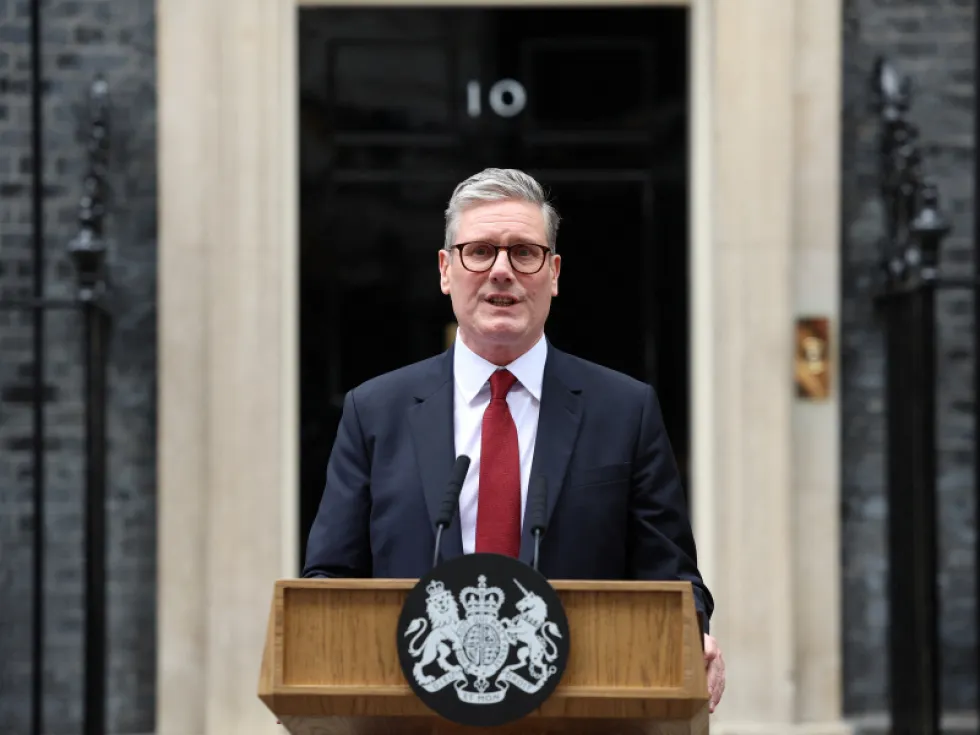By: Christian Haag
July 5 2024
 (Source: Phil Noble/Reuters)
(Source: Phil Noble/Reuters)
The U.K. 2024 general election is over, and the Labour Party has won a strong majority of 412 seats, with two seats left to be declared as this article was published. However, criticism of the first-past-the-post (FPTP) voting system has flared up in the post-election discussion, as while Labour won 65 percent of seats in the House of Commons, they did so with only 34 percent of the vote.
It is not the only example. Reform UK won 14 percent of the vote with four million votes but gained just four seats. The Liberal Democrats, meanwhile, won 12.2 percent of the vote with 3.5 million votes but gained 71 seats.
How could Labour win a majority of seats with only 34 percent of the vote, and why do the Liberal Democrats have more seats than Reform? The answer is the first-past-the-post system.
The U.K. vote is divided into 650 constituencies, which are converted to seats at the House of Commons in Westminister. FPTP functions in a “winner take all” way, with the candidate who gets the most votes winning the entire constituency. The party with the most seats then forms a government. Therefore, to vote for a party in your constituency, it must have a candidate from that party. This differs from a proportional representation system, in which parties get seats based on the percentage of votes rather than the number of constituencies it has won.
There are advantages to the system. It often ensures a strong one-party government, giving the parties a fair chance to make their proposed policies a reality. This was, however, not the case in 2010 when no party gained a majority, and the Conservatives formed a coalition government with the Liberal Democrats, the Cameron-Clegg coalition. The system also creates a close relationship between the constituency and the MP, meaning a constituency can oust the MP. For example, Conservative MPs Liz Truss and Sir Jacob Rees-Mogg lost the support of their constituents and, therefore, their seat in parliaments at this election.
Disadvantages include the chance of an MP winning a constituency despite not having a majority vote. The system also faces criticism for not allowing for fair representation and is a disadvantage for minor parties, as seen in the most recent election. The FPTP system encourages tactical voting, where the public votes for the candidate most likely to win the constituency to block another candidate from winning, even though this may not be their preferred choice of candidate. This is generally the case for so-called “safe seats,” which comprise about two-thirds of all constituencies in the U.K.
The U.K. held a referendum on May 5, 2011, on changing from FPTP to an alternative vote system. A majority decided to keep FPTP, with 67.9 percent of voters opposing the change.
During the 2024 election campaign and in the aftermath of the vote, politicians from smaller parties have reiterated historic criticism of the system. In a press conference on July 5, Reform MP for Clacton Nigel Farage said: “Our outdated, first-past-the-post electoral system is not fit for purpose, and we will campaign with anyone and everyone to change this electoral system.”
In an opinion piece published in the Telegraph on July 5, Reform MP Richard Tice stated: “First past the post is rotten to its core.”
The Liberal Democrats leader, Sir Ed Davey, also told the BBC he wants to change the voting system and that his party believes in “fair votes.”
In an X post on July 5, Green Party Speaker on Economy and Finance Molly Scott Cato wrote, “And the winner is… First past the post… To save our democracy we need a fair voting system.”
The Electoral Reform Society is an independent organization campaigning to change the U.K. voting system to proportional representation from the FPTP system. In an attempt to visualize the flaws of the voting system, they have compiled statistics on how many votes each party needed compared to each seat they got. Under the FPTP system, Labour needed 23,568 votes to win each seat, while Reform UK needed one million votes per seat. The Green Party required half a million votes.
The Electoral Reform Society also has a visual representation of how the 2019 general election would have been different if the U.K. had a proportional system. A visualization has not yet been prepared for the 2024 vote.
Despite criticism of FPTP from smaller parties, a second referendum or reform of the voting system is unlikely. Keir Starmer told ITV Politics in June that “It is the right system” and that they had no intention of changing it. Given Labour's strong majority with the current system, they have no incentive to vote for changing it either.
Follow Logically Facts' coverage and fact-checking of the U.K. General Election here.